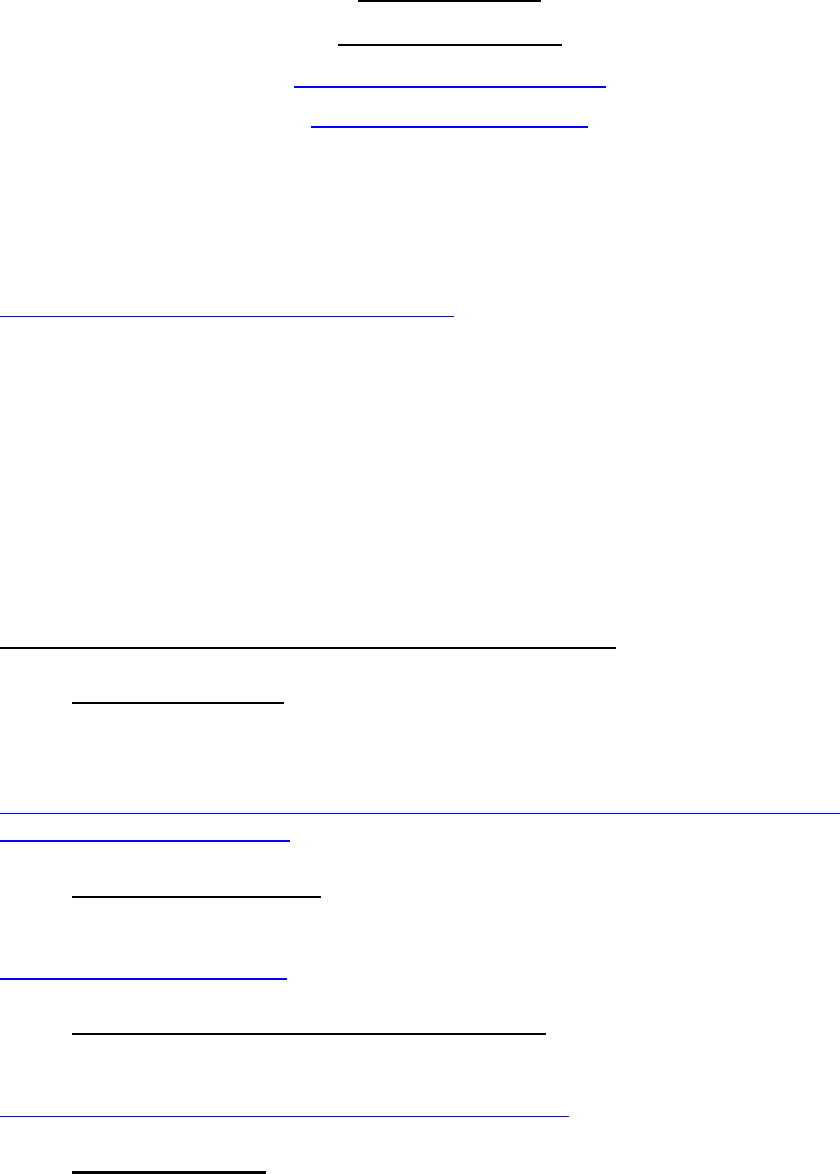
Curriculum Vitae
Salman M. A. Salman
Salmanmasalman@gmail.com
www.salmanmasalman.org
Dr. Salman M. A. Salman is the Editor of Brill Research Perspectives in International
Water Law; Distinguished Honorary Member and Fellow, International Water Resources
Association (IWRA); Chair, University of Khartoum Council (since 2019); and an
academic researcher and consultant on water law and policy
https://www.internationalwaterlaw.org/experts/
.
Until December 2009 he was Lead Counsel with the Legal Vice Presidency of the World
Bank, and the Bank’s Water Law Adviser, as well as adviser on the environmental and
social safeguard policies.
Before joining the World Bank, Dr. Salman worked as a Legal Officer with the
International Fund for Agricultural Development of the United Nations (IFAD), in Rome,
Italy (1981–1983). Prior to that, he was a lecturer at the Faculty of Law of the University
of Khartoum in Sudan (1978–1981), and a teaching assistant, (1972–1977).
Dr. Salman obtained his LL.B. from the University of Khartoum, Sudan (1972); and
holds an LL.M. (1974), and a J.S.D. (1977), both from Yale Law School, New Haven,
Connecticut, USA.
International Water Resources Association (IWRA) Awards
(i) Crystal Drop Award
Dr. Salman was the co-recipient of the IWRA Crystal Drop Award 2017, presented at the
Cancun, Mexico, 16
th
IWRA Congress (shared with Dr. Cecilia Tortajada); the highest
IWRA award, presented every three years:
https://www.internationalwaterlaw.org/blog/2017/06/09/salman-m-a-salman-bestowed-
with-iwra-crystal-drop-award/
(ii) 50
th
Anniversary Award
Dr. Salman was the recipient of two awards at the IWRA 50
th
Anniversary Awards,
presented at Daegu, South Korea, 17
th
IWRA Congress (2021):
https://www.iwra.org/awards/
(iii) Distinguished Honorary Membership Award:
Dr. Salman was the recipient of the IWRA Distinguished Honorary Member Award in
2020:
https://www.iwra.org/honorary-and-fellow-members-2021/
(iv) Best Paper Award
Dr. Salman received two awards for best paper published by Water International, the
official journal of the IWRA:

2
(1) Best paper award 2007 for the article titled “From Marrakech, Through The
Hague to Kyoto: Has the Global Debate on Water Reached a Dead End?” and
(2) Best paper award 2015 for the article titled “The Nile Basin Cooperative
Framework Agreement – A Peacefully Unfolding African Spring?”
Water Law
Dr. Salman started working on water law for the World Bank in 1994, and was the first
lawyer to be appointed by the World Bank as the Water Law Adviser. He handled in that
capacity a vast array of issues on national and international water law and policy,
including giving advice on and assisting with water legislation, water institutions, water
environmental issues, international water treaties and conventions, international water
disputes, dam safety legislation, as well as water resources projects, particularly the
interpretation and application of the World Bank Policy for Projects on International
Waterways.
Dr. Salman organized a number of conferences at the World Bank on major water issues,
including International Watercourses, Groundwater, Water Users’ Associations, and
Institutional Reform on Irrigation and Drainage, and had convened, spoken at, and
chaired many sessions during the annual World Bank Water Weeks (1993 to 2009).
He handled a number of complex water assignments for the Bank including the Baglihar
difference over the Indus River (India/Pakistan), the dispute over the Pulp Mills Projects
on the Uruguay River (Argentina/Uruguay), the Bujagali Hydropower Project on the Nile
in Uganda, and the Red Sea Dead Sea Water Conveyance Study. He was the Manager of
the Water Legislation and National Strategies Window of the World Bank Netherlands
Water Partnership Program (BNWPP) (2000 – 2009).
Dr. Salman assisted in the preparation of water legislation in a number of countries
including Bhutan, Kazakhstan, Malawi, Namibia, Saudi Arabia, South Africa and
Yemen. He also assisted with the preparation of the legal instruments for water users’
associations in a number of countries in Central Asia, South Asia, Africa and the Middle
East, gave presentations on this topic to a number of governmental officials, famers’
organizations, and academic institutions, and led the work in this area for some time in
the Gezira Scheme in the Sudan (2002 – 2010).
He also assisted with the preparation, negotiations and finalization of a number of water
treaties, including the SADC Protocol, the Senegal Water Charter, and the Guarani
Aquifer Memorandum of Understanding. He was also a member of the international
water lawyers’ team that helped explain and propagate the UN Watercourses Convention
until its entry into force in August 2014.
Operational Work
Before his designation to handle water law in 1993, Dr. Salman worked as an operational
lawyer, handling development projects for a number of countries, including China,
Malaysia, Mongolia, Korea (East Asia), India and Bangladesh (South Asia), and
Botswana, Somalia and Tanzania (Africa), focusing mainly on water supply, irrigation,
agriculture and rural development projects (1983–1993). He participated in that capacity
in a number of preparation, appraisal and supervision missions, and drafted and
negotiated the legal documents for such projects. He handled similar operational work

3
with IFAD (1981 – 1983) for a number of African, Asian, and Middle Eastern countries
including Botswana, China, Egypt, Ethiopia, India, Jordan, Kenya, Tanzania, Uganda,
Yemen and Zambia.
Safeguard Policies
In addition to water law, Dr. Salman worked (1997 – 2009) as an adviser on the World
Bank environmental and social safeguard policies (environmental assessment, natural
habitats, physical cultural resources, forests, pesticides, safety of dams, involuntary
resettlement, indigenous peoples, disputed areas and international waterways, as well as
the disclosure policy), with special emphasis on the international law principles
associated therewith. Dr. Salman assisted the Bank Task Teams with the interpretation
and application of those policies, and provided extensive training to the staff thereon. He
was a member of the World Bank Team that prepared the Bank’s Policy on Involuntary
Resettlement (2001), as well as the Sourcebook on the Policy (2005); and was the co-
author of the Bank’s Policy on Indigenous Peoples (2005), and one of the authors of the
Guidebook on the Policy (2010). He presented and discussed this Policy at a number of
global forums, including the UN Commission for Human Rights, UN Permanent Forum
on Indigenous Issues, and at roundtable discussions with NGOs and Indigenous Peoples
organizations. He provided extensive training on the safeguard policies to the Bank
headquarters and field staff, as well as governments’ officials from varying countries and
NGOs and academic institutions.
In connection with his work on the safeguard policies, Dr. Salman was the legal member
of the Bank teams that addressed the work of (i) the World Commission on Dams Report
(Dams and Development, A New Framework for Decision-making, 2000), (ii) the
Extractive Industries Review (2003), and (iii) the Narmada Dam and Water Projects that
preceded the safeguard policies (1992–2004). He also worked on a number of Inspection
Panel cases including Mumbai Urban Transport Project, and Ecodevelopment Project
(India), Lesotho Highlands Water Project (Lesotho/South Africa), Third Power, Fourth
Power, and Bujagali Hydro-power Projects (Uganda), and Arun Hydropower (Nepal).
He served as a member of the Legal Vice Presidency Human Rights Team (2002- 2007),
that outlined the World Bank approach to human rights in its projects and policy work,
and co-authored the book on the Human Right to Water (see Publications Below).
Teaching Experience
Dr. Salman taught as a lecturer (the title changed to assistant professor in 1985) at the
Faculty of Law of the University of Khartoum (1978-1981), and chaired a number of
academic committees, including the Curriculum Revision Committee, the Research
Committee, as well as the Library Committee. He also worked as a teaching assistant at
the same Faculty of Law (1972-1977).
He was a visiting professor with the International Islamic University Malaysia (IIUM) in
Kuala Lumpur, May – June 2013, where he gave lectures, reviewed the syllabus of the
Law school and made recommendations thereon, advised graduate students, and wrote a
proposal for a course on national and international water law.

4
He was an external examiner for PhD and Masters degree thesis with a number of
universities including Pacific McGeorge Law School; University of Dundee Centre for
Water Law, Policy and Science; Loyola University of Chicago Law School; and
University of Witwatersrand, Johannesburg, South Africa.
He has given lectures on various legal and policy issues on national and international
water resources at a number of universities, including Yale University, University of
Maryland, University of Dundee, Georgetown University, George Washington
University, American University, Johns Hopkins University, New York University,
Texas University, Massachusetts Institute of Technology (MIT), University of Geneva,
University of Khartoum, Arizona State University, and McGeorge School of law of the
University of the Pacific. He has also given keynote addresses and presentations at a
number of conferences, workshops and seminars, including the World Water Forums, the
World Bank annual water weeks, as well as the American Society of International Law
(ASIL) and the American Association for the Advancement of Science (AAAS).
Dr. Salman has been selected as an honorary lecturer at the University of
Dundee/UNESCO Centre for Water Law, Policy and Science (1998 to present); and as a
Fellow with IWRA (2012).
He provided extensive training to Bank headquarters and field staff, as well as
government officials from varying countries, both in Washington and at the respective
countries, on national and international water law and policy issues, as well as the
safeguard policies, their application to the Bank operations and their interface with
international law.
The Hague Academy of International Law
Dr. Salman was selected by The Hague Academy of International Law as the Co-Director
(with Professor Laurence Boisson de Chazournes) for the Centre for Research and
Studies for the 2001 session on “Water Resources and International Law,” where he
taught and supervised 12 participants, most of them at the doctoral level (August –
September 2001). The academic work undertaken at that session has been published by
The Hague Academy in 2005 (see Publications Below).
The Permanent Court of Arbitration
Dr. Salman assisted the Permanent Court of Arbitration in The Hague in organizing a
global seminar on “Resolution of International Water Disputes” in 2002, which was
attended by more than 100 participants from all over the world, where he gave a major
presentation. The proceedings of the seminar to which he contributed a chapter were
published in 2003 (see Publications Below).
Other Regional and International Organizations
Dr. Salman taught international water law at the Arab Water Academy training session on
Water Diplomacy (September 2010) at Abu Dhabi; the University of Geneva session of
the United Nations International Law Seminar (July 2011); and the Arab Water Council
conference in Cairo in November 2011.
He reviewed, commented on, and wrote the Preface for the publication of the
International Law Development Organization (IDLO) and the Centre for International

5
Sustainable Development Law (CISDL) “Sustainable Water Management - Compendium
of Legal Best Practices, 2011.”
Membership of Professional Organizations and Committees
Dr. Salman has been elected/selected as:
(i) Distinguished Honorary Member, International Water Resources Association (IWRA),
2020
(i) Fellow, International Water Resources Association (IWRA) 2012.
(ii) Member of the Executive Committee of IUCN Commission on Environmental Law
(CEL), Specialist Group on Water and Wetlands; 2009 to present;
(iii) Director, International Water Resources Association (IWRA) 2007–2010; and a
member of IWRA since 1994 (Montpellier, France);
(iv) Member of the International Water Academy since 2004 (Oslo, Norway);
(v) Member of the International Association of Water Law (AIDA) since 2002 (Rome,
Italy);
(vi) Member of the Water Resources Committee of the International Law Association
(ILA) 1999-2007 (London, UK);
(vii) Member of the Water Law Committee of the International Bar Association (ILA)
1999–2002 (London, UK);
(viii) Member of the Utton Transboundary Resources Center, Advisory Committee on
Inter-States Water Compacts (University of New Mexico) 2005–2006; and
(ix) Member of the World Bank Water Sector Board, as well as all its predecessors,
(1993 to 2009).
(x) Member of the Sudan Working Group of the Woodrow Wilson International Center
for Scholars, 2009 to present.
Publications, Editorial Work and Articles Review
Dr. Salman has published extensively in the area of international and national water law
and policy. Some of his books have been translated to, and published in Arabic, Chinese,
French, and Russian (see Publications Below).
Dr. Salman was the editor of the “Law, Justice, and Development Series” of the World
Bank (2003 - 2009). He has served as a member the Editorial Board of the journals:
(i) “Water International” (2003 - 2007), and
(ii) Water Policy (since 2007).
He was a member of the “World Bank Editorial Committee” 2004-2009. This is the
Committee that set the policy for, and oversaw, the entire World Bank publication work.
He also served as a member of the Editorial Board for The World Bank Legal Review –
Law, Equity, and Development, Volume 2 (2006).
Dr. Salman is currently the Editor of Brill Research Perspectives in International Water
Law Journal www.Brill.com/rpwl
.
He has been reviewing and evaluating articles for a number of journals, including the
Natural Resources Forum; Water International; Water Policy; International Negotiations;
Journal of Peace Research; Arab Geographer; Law and Social Justice and Global
Development, and Hydrological Science Journal.

6
PUBLICATIONS
Books in English and other Languages:
1. Notification concerning Planned Measures on Shared Watercourses – Synergies
between the Watercourses Convention and the World Bank Policies and Practice (Brill
2019; published simultaneously as Volume 4 (2) 2019 in International Water Law (see
Articles below).
2. Shared Watercourses and Water Security in South Asia – Challenges of
Negotiating and Enforcing Treaties, with Kishor Uprety (Brill 2018; published
simultaneously as Volume 3 (3) 2018 in International Water Law (see Articles below).
3. Sharing Water, Sharing Benefits: Working Towards Effective Transboundary
Water Resources Management (edited by Aaron Wolf, Adapted from the World Bank
International Water Course developed by a number of contributors including myself,
UNESCO, Oregon State University, 2010).
4. The World Bank Policy for Projects on International Waterways – An Historical
and Legal Analysis (Martinus Nijhoff Publishers, Legal Aspects of Sustainable
Development Series, The Hague, 2009; Law, Justice, and Development Series, The
World Bank, 2009).
5. Regulatory Frameworks for Water Resources Management – A Comparative
Study, with Daniel Bradlow; Law, Justice, and Development Series, The World Bank,
(2006); available (PDF) in Arabic.
6. Water Resources and International Law, with Laurence Boisson de Chazournes
(co-editors and contributors); The Hague Academy of International Law and Martinus
Nijhoff Publishers, The Hague, (2005).
7. The Human Right to Water – Legal and Policy Dimensions, with Siobhan
McInerney Lankford; Law, Justice, and Development Series, The World Bank, (2004).
8. Conflict and Cooperation on South Asia’s International Rivers – A Legal
Perspective, with Kishor Uprety; Kluwer Law International, International and National
Water Law and Policy Series, The Hague, (2002); also published under the Law, Justice,
and Development Series, The World Bank (2003).
9. Regulatory Frameworks for Dam Safety – A Comparative Study, with Daniel
Bradlow and Alessandro Palmieri; Law, Justice, and Development Series, The World
Bank, (2002). Published also in Chinese (2003); Russian (2003); and French (2003).
10. Institutional Reform for Irrigation and Drainage - Proceedings of a World Bank
Workshop, with Fernando Gonzalez (co-editors and contributors); World Bank Technical
Paper No. 524, (2002).
11. Groundwater: Legal and Policy Perspectives, (editor and contributor); World
Bank Technical Paper No. 456 (1999); published in Arabic (2003).
12. International Watercourses – Enhancing Cooperation and Managing Conflict
with Laurence Boisson de Chazournes (co-editors and contributors); World Bank
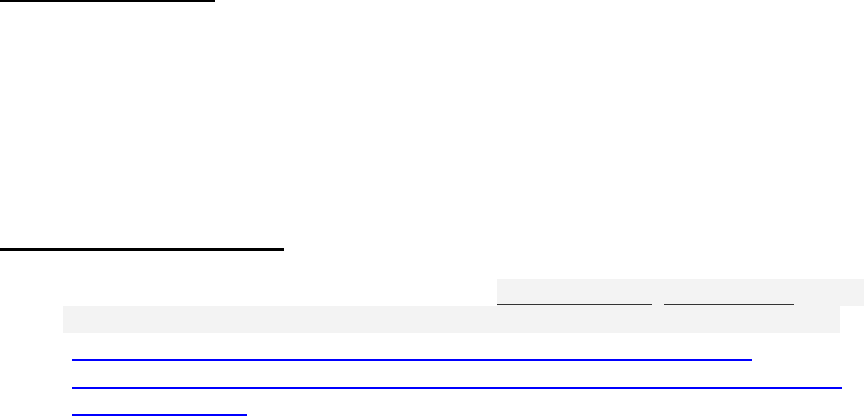
7
Technical Paper No. 414 (1998); published also in Arabic (1998); and French (1999); and
in Russian by the United Nations Economic Commission for Europe (UN/ECE) (1998).
13. The Legal Framework for Water Users’ Associations – A Comparative Study;
World Bank Technical Paper No. 360 (1997), (second printing 1999, third printing 2002);
published also in Arabic (1997), and Russian (1998).
Books in Arabic only
1. Secession of South Sudan – Role and Responsibilities of the Northern Sudanese
Political Forces (Sudan Research Center, Fairfax, Virginia, USA, 2016).
2 Sudan and the Nile Waters – Disputes, Negotiations, Treaties and the Future
Relations of the Nile Basin Countries (Sudan Research Center, Fairfax, Virginia, USA,
2017).
3. Secession of South Sudan – Responses to Claims of Northern Politicians and
Authors (Sudan Research Center, Fairfax, Virginia, USA, 2019).
Articles and Book Chapters
1. Equitable and Reasonable Utilization and the Obligation against causing
significant harm – Are they reconcilable? AJIL Unbound , Volume 115 , 2021,
183; translated to and published in the other five UN languages, and available at:
https://www.unige.ch/droit/eau/en/une/202
1/lutilisation-equitable-et-
raisonnable-et-lobligation-de-ne-pas-causer-des-dommages-significatifs-sont-
ils-reconciliables/
2. A Role for the IWRA in International Water Disputes? 46 Water International 1205
(2021)
3. Freshwater Resources, Chapter 30, Oxford Handbook of International
Environmental Law, Lavanya Rajamani et al, eds. (OUP, 2021).
4. The Nile River Basin – On the Road towards Inevitable Cooperation? Chapter 13,
A Bridge over Troubled Waters – Dispute Resolution in the Law of International
Watercourses and the Law of the Sea, Helene Ruiz Fabri, et al, eds. (Brill, Nijhoff,
2020).
5. The Nile River Basin and its Changing Legal Contours, Chapter 22, Research
Handbook on International Water Law, Stephen McCaffrey et al, eds., (Edward
Elgar Publishing, Cheltenham, UK, 2019).
6. Notification concerning Planned Measures on Shared Watercourses – Synergies
between the Watercourses Convention and the World Bank Policies and Practice,
Volume 4 (2) International Water Law 2019 (published simultaneously as a paper
back book by Brill, see books above).
7. The Obligation not to Cause Significant Harm, Chapter 6, The UN Convention on
the Law of the Non-Navigational Uses of International Watercourses: A
Commentary (Laurence Boisson de Chazournes et al, eds., OUP 2018).
8. Agreement on Declaration of Principles on the GERD – Interdependence or
Levelling the Nile Basin Playing Field? Chapter 7, Complexity of Transboundary
Water Conflicts - Enabling Conditions for Negotiating Contingent Resolutions
(Enamul Choudhury and Shafiqul Islam, eds., 2018 Anthem Press, NY).
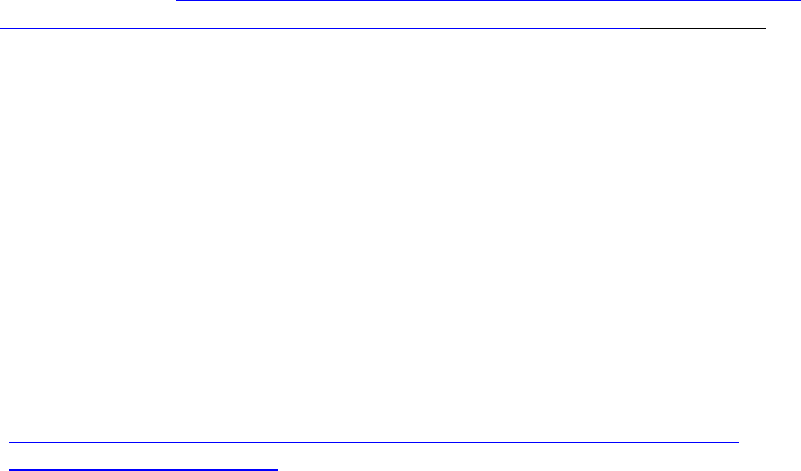
8
9. Shared Watercourses and Water Security in South Asia – Challenges of
Negotiating and Enforcing, Volume 3 (3) 2018 International Water Law
(published simultaneously as a paper back book by Brill, see books above).
10. The Human Right to Water and Sanitation: Challenges and Opportunities, Chapter
12, Research Handbook on Freshwater and International Relations (Mara Tignino
and Christian Brethaut, eds., Edward Elgar 2018).
11. Cooperation: The Missing Pillar in the Nile, Volume 2, Discourse (Foreign
Relations Strategic Studies Institute, Addis Ababa, Ethiopia, March 2018).
12. Acceptance Address for the Crystal Drop Award – An Overview of the History of
the IWRA, 45 Water International 2017 pp 632 – 635.
13. The GERD and the Revival of the Egyptian-Sudanese Dispute over the Nile
Waters, 2017 Ethiopian Yearbook of International Law 97 – 100.
14. The Nile Basin Cooperative Framework Agreement – The Impasse is Breakable!
Available under:
https://www.internationalwaterlaw.org/blog/2017/06/19/the-nile-
basin-cooperative-framework-agreement-the-impasse-is-breakable (June 2017).
15. The Declaration of Principles on the Grand Ethiopian Renaissance Dam – An
Analytical Overview, 2016 Ethiopian Yearbook of International Law, 203 – 222.
16. The Grand Ethiopian Renaissance Dam – The Road to the Declaration of
Principles and the Khartoum Document, Water International 2016, at 512.
17. Entry into Force of the UN Watercourses Convention – Why should it Matter? 31
International Journal of Water Resources Development, 2015.
18. Specially Invited Opinions and Research Reports of the International Water Law
Project on the Entry into Force of the UN Watercourses Convention, where are the
Nile Countries? 16 Water Policy, 2014, at 1203 - 1206
19. The Human Right to Water and Sanitation: Is the Obligation Deliverable? 39
Water International 2014, at 969.
20. Santa Cruz Declaration on the Global Water Crisis – A Comment, 39 Water
International (2014) 246, at 251.
21. Sudan Continues Relinquishing a Growing Portion of Nile Waters; available at:
http://www.salmanmasalman.org/sudan-continues-relinquishing-a-growing-
portion-of-nile-water-share/ (December 2014).
22. Water Resources in the Sudan North South Peace Process and the Ramifications of
the Secession of South Sudan, in Water and Post-Conflict Peacebuilding (Erika
Weinthal, Jessica Troell, and Mikiyasu Nakayama, editors; Environmental Law
Institute, Washington DC; Earthscan, London, 2014) at 237.
23. Misconceptions Regarding Interpretation of the UN Watercourses Convention, in
The UN Watercourses Convention in Force - Strengthening International Law for
Water Management (F. Rocha Loures & A. Rieu-Clarke, eds, Earthscan, London
2014) 28.
24. South Sudan Road to Independence – Broken Promises and Lost Opportunities, 26
Pacific McGeorge Global Business and Development Law Review (2013) 343.
25. The Nile Basin Cooperative Framework Agreement – A Peacefully Unfolding
African Spring? 38 Water International (2013) 17.
26. Mediation of International Water Disputes - The Indus, the Jordan and the Nile
Basins Interventions in L. Boisson de Chazourens, C. Leb, & M. Tignino (eds.),
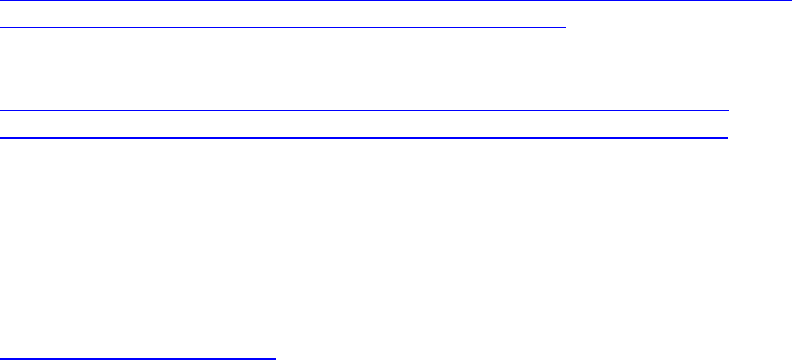
9
International Law and Freshwater: The Multiple Challenges, (Edward Elgar
Publishing Ltd, Cheltenham, 2013) 360.
27. The Abyei Territorial Dispute between North and South Sudan: Why has its
Resolution Proven Difficult? in Land and Post-Conflict Peacebuilding (Jon Unruh
and Rhodri Williams, editors; Environmental Law Institute, Washington DC;
Earthscan, London, 2013) 25.
28. The Human Right to Water – Challenges of Implementation, American Society of
International Law, Proceedings of the 106
th
Annual Meeting, 2012, at 44.
29. Grand Ethiopian Renaissance Dam – Challenges and Opportunities, in The CIP
Report (Center for Infrastructure Protection), Volume 10, No. 4, at 21, October
2011 (University of George Mason, School of Law).
30. The World Bank Policy and Practice for Projects Affecting Shared Aquifers, 36
Water International, 595, (2011).
31. The New State of South Sudan and the Hydro-politics of the Nile Basin, 36 Water
International, 154 (2011).
32. The Baardhere Dam and Water Infrastructure Project in Somalia – Ethiopia’s
objection and the World Bank Response, Hydrological Sciences Journal, 56(4),
630 (2011).
33. Legal Aspects of Sharing and Management of Transboundary Waters in South Asia
– Preventing Conflicts and Promoting Cooperation, Hydrological Sciences
Journal, 56(4), 641 (2011).
34. The Future of International Water Law – Regional Approaches to Shared
Watercourses? in Looking to the Future: Essays on International Law in Honor of
W. Michael Reisman (Arsanjani et al, eds.) Martinus Nijhoff Publishers, The
Hague, 907 (2011).
35. Downstream Riparians Can Also Harm Upstream Riparians – The Concept of
Foreclosure of Future Uses, 35 Water International 350 (2010).
36. World Bank Policy for Projects on International Waterways, in Sharing Water,
Sharing Benefits: Working Towards Effective Transboundary Water Resources
Management (Aaron Wolf, ed., UNESCO and Oregon State University 2010) 128.
37. The World Bank and the Gezira Scheme in the Sudan – Political Economy of
Irrigation Reforms (World Bank Report No. 96873, June 2010), available at:
http://documents.worldbank.org/curated/en/2010/06/16371308/sudan-world-bank-
gezira-scheme-sudan-political-economy-irrigation-reforms.
38. The Niger River, Max Planck Encyclopedia of Public International Law, (Oxford
University Press 2009), available at:
http://www.mpepil.com/subscriber_article?script=yes&id=/epil/entries/law-
9780199231690-e1325&recno=1&author=Salman%20%20Salman%20MA
39. Water Resources in the Sudan North-South Peace Process – Past Experience and
Future Trends, 16 African Yearbook of International Law 299 (2008).
40. The Baglihar Difference and its Resolution Process – A Triumph for the Indus
Waters Treaty? 10 Water Policy, 105 (2008).
41. The Evolution, Codification and Current Status of International Water Law, UN
Audiovisual Library of International Law, 2008, available in both English and
Arabic at:
http://www.un.org/law/avl/
10
42. The Helsinki Rules, the UN Watercourses Convention and the Berlin Rules:
Perspectives on International Water Law, 23 International Journal of Water
Resources Development, 619 (2007).
43. The United Nations Watercourses Convention Ten Years Later – Why Has its
Entry into Force Proven Difficult? 32 Water International, 1 (2007).
44. Oceans and Freshwater Resources, with David Freestone, Chapter 15, The Oxford
Handbook of International Environmental Law, (Daniel Bodansky, Jutta Brunnee
and Ellen Hey, editors), Oxford University Press, 337 (2007).
45. The Indus Waters Treaty, the Baglihar Difference and ICSID Administration of the
Proceedings, (with Eloise Obadia), Volume 23, No 2, News from ICSID
(International Centre for Settlement of Investment Disputes), at 1 (2006).
46. International Water Disputes – A New Breed of Claims, Claimants and Settlement
Institutions, 31 Water International 1 (2006).
47. Reports on International Organizations and Bodies – The World Bank, with
Charles Di Leva and Others, Volume 17, Yearbook of International Environmental
Law, Oxford University Press, 784 (2006).
48. The World Bank’s New Policy on Indigenous Peoples, Volume 2, The World Bank
Legal Review, 525 (2006).
49. Evolution and Context of International Water Resources Law, in Water Resources
and International Law; Chapter 2, (S. Salman and Boisson de Chazournes (co-
eds.) The Hague Academy of International Law and Martinus Nijhoff Publishers,
45 (2005).
50. United Nations General Assembly Resolution: International Decade for Action,
Water for Life, 2005-2015, 30 Water International 415 (2005).
51. Reports on International Organizations and Bodies – The World Bank, with
Charles Di Leva and Others, Volume 16, Yearbook of International Environmental
Law, Oxford University Press, 810 (2005).
52. Shared Watercourses in the Southern African Development Community:
Challenges and Opportunities, 6 Water Policy, 25 (2004).
53. Reports on International Organizations and Bodies – The World Bank, with
Charles Di Leva and Others, Volume 15, Yearbook of International Environmental
Law, Oxford University Press,677 (2004).
54. From Marrakech Through The Hague to Kyoto – Has the Global Debate on Water
Reached a Dead End? Part Two, 29 Water International, 11 (2004).
55. From Marrakech Through The Hague to Kyoto – Has the Global Debate on Water
Reached a Dead End? Part One, 28 Water International, 491 (2003).
56. Good Offices and Mediation and International Water Disputes, in Resolution of
International Water Disputes, The Permanent Court of Arbitration/Peace Palace
Papers, edited by the International Bureau of the Permanent Court of Arbitration,
Kluwer Law International, The Hague, 155 (2003).
57. Reports on International Organizations and Bodies – The World Bank, with David
Freestone and Others, Volume 14, Yearbook of International Environmental Law,
Oxford University Press,774 (2003).
58. Water Resources and International Law, The Hague Academy of International
Law, Centre for Studies and Research in International Law and International
11
Relations, Report of the co-directors, 2001 Session, Martinus Nijhoff Publishers,
The Hague, 63 (2002).
59. The Abuja Ministerial Declaration on Water – A Milestone or Just Another
Statement? 27 Water International, 442 (2002).
60. Regulatory Framework for Participatory Irrigation Management: An Overview; in
Slavko Bogdanovic, (ed.) Legal Aspects of Sustainable Water Resources
Management, (YuAWL and IWLRI) 343 (2002); also published in Institutional
Reform for Irrigation and Drainage (Gonzalez and Salman, eds.) 59 (2002).
61. Reports on International Organizations and Bodies – The World Bank, with David
Freestone and Others, Volume 13, Yearbook of International Environmental Law,
Oxford University Press, 797 (2002).
62. Inter-states Water Disputes in India - An Analysis of the Settlement Process, 4
Water Policy, 223 (2002).
63. International Groundwater Law and the World Bank Policy for Projects on
Transboundary Groundwater, with Raj Krishna; in Aaron Wolf, (ed.) Conflict
Prevention and Resolution in Water Systems, (Edward Elgar Publishing,
Cheltenham, UK) 360 (2002); also published in “Groundwater: Legal and Policy
Perspectives (S. Salman, ed.) 163 (1999).
64. Institutional Reform for Irrigation and Drainage, (with Fernando Gonzalez),
Introduction, in, Institutional Reform for Irrigation and Drainage (Gonzalez and
Salman, eds.) 1 (2002).
65. Reports on International Organizations and Bodies – The World Bank, with David
Freestone and Others, Volume 12, Yearbook of International Environmental Law,
Oxford University Press, 763 (2001).
66. Legal Regime for Use and Protection of International Watercourses in the
Southern African Region: Evolution and Context, 41 Natural Resources Journal,
981 (2001).
67. Dams, International Rivers and Riparian States: An Analysis of the
Recommendations of the World Commission on Dams, 16 American University
International Law Review, 1477 (2001).
68. The Legal Response to the World’s Water Crisis: What Legacy From The Hague?
What Future in Kyoto? (with Patricia Wouters and Patricia Jones) 4 University of
Denver Water Law Review, 418 (2001).
69. Revised Protocol on Shared Watercourses in the Southern African Development
Community (SADC), Introductory Note, 40 International Legal Materials, 317
(2001).
70. Sharing Rivers for Peace, Development and Security: An Analysis of the
Recommendations of the World Commission on Dams, 26 Water International, 283
(2001).
71. Reports on International Organizations and Bodies – The World Bank, with David
Freestone and Others, Volume 11, Yearbook of International Environmental Law,
Oxford University Press, 755 (2000).
72. International Rivers as Boundaries – The Dispute over Kasikili/Sedudu Island and
the Decision of the International Court of Justice, 25 Water International, 580
(2000).

12
73. Hydro-Politics in South Asia: A Comparative Analysis of the Mahakali and the
Ganges Treaties, (with Kishor Uprety), 39 Natural Resources Journal, 295 (1999).
74. Sharing the Ganges Waters Between India and Bangladesh – An Analysis of the
1996 Treaty, in International Watercourses (Salman and Boisson de Chazournes,
eds.) 127 (1998).
75. International Watercourses – Enhancing Cooperation and Managing Conflict,
Conclusion, in International Watercourses (Salman and Boisson de Chazournes,
eds.) 167 (1998).
76. Co-Management of Resources: The Case of the Ganges River; American
University, Center for the Global South, online Publications, (October 1998),
available at:
http://www.american.edu/maksoud/water98/present1.htm
77. Lay Tribunals in the Sudan: An Historical and Socio-Legal Analysis, 21 Journal
of Legal Pluralism and Unofficial Law, 671 (1983).
78. Legal Profession in the Sudan: A Study of Legal and Professional Pluralism, in C.
J. Dias et al (editors), Lawyers in the Third World: Comparative and
Developmental Perspectives, 226 (Scandinavian Institute of African Studies,
Uppsola,1981).
Short Articles and Reports
Published a number of short articles in “The Nature of Law,”
(http://go.worldbank.org/EMSVNNE5X0) the Newsletter of the Environmental and
International Law Group of the Legal Vice Presidency of the World Bank:
1. The Abyei Territorial Dispute between Northern and Southern Sudan and the
Decision of the Permanent Court of Arbitration, Issue 10, September 2010.
2. The Fifth World Water Forum, Issue 9, September 2009.
3. The Inter-American Commission on Human Rights Grants Precautionary
Measures in Favor of Panama’s Ngöbe Indians (with Yuan Tao) Issue 9, September
2009.
4. Belize and Guatemala Conclude an Agreement to Submit a Long-Standing
Territorial Dispute to the International Court of Justice (with Antón Leis García) Issue 8,
March 2009.
5. United Nations General Assembly Adopts a Resolution on Transboundary
Aquifers, Issue 8, March 2009.
6. The International Law Commission Adopts Draft Articles on the law of
Transboundary Aquifers, Issue 7, September 2008.
7. The Right to be Informed of the Vienna Convention Rights
—An update on the
Provisional Measures Granted by the International Court of Justice (with Sachiko
Morita), Issue 7, September 2008.
8. The Right to be Informed of the Vienna Convention Rights (with Sachiko Morita)
Issue 6, April 2008.
9. The Adoption of the United Nations Declaration on the Rights of Indigenous
Peoples, Issue 5, October 2007.
10. Neutral Expert Renders his Decision on the Baglihar Difference, The Nature of
Law, Issue 4, April 2007.

13
11. River Uruguay Dispute before the ICJ (Orders on Provisional Measures), The
Nature of Law, (with Maurizio Ragazzi) Issue 4, April 2007.
12. The United Nations Declaration on the Rights of Indigenous Peoples, The Nature
of Law, (with Maurizio Ragazzi) Issue 3, October 2006.
13. The Fourth World Water Forum, The Nature of Law, Issue 2, July 2006.
14. River Uruguay Dispute Before the ICJ, The Nature of Law, (with Maurizio
Ragazzi) Issue 2, July 2006.
Contribution to Reports and other Publications
Contributed to a number of reports and publications, including:
1. World Development Report – Development and Climate Change (The World
Bank, 2010).
2. Making the Most of Scarcity – Accountability for Better Water Management in the
Middle East and North Africa (MENA Development Report, The World Bank, 2007).
3. Water Resources Sector Strategy – Strategic Directions for World Bank
Engagement (The World Bank 2004).
4. Involuntary Resettlement Sourcebook – Planning and Implementation in
Development Projects (The World Bank, 2004).
5. National Sovereignty and International Watercourses (Green Cross International,
Geneva, 2000).
6. India: Water Resources Management Sector Review: (Inter-Sectoral Water
Allocation) and (The Irrigation Sector), (Allied Publishers, New Delhi, 1999).
Articles in Arabic
1. The Gezira Scheme in the Sudan: Evolution, Developments and the 2005 Gezira Act,
The Sudanese Studies Centre, The State of the Country, The Tenth Sudanese Strategic
Report, 2008-2009, (The Sudanese Studies Centre, Khartoum, Sudan), at 201.
2. Law and International and Regional Agreements for Regulation, Development and
Utilization of International Watercourses in Future of Water Resources Forum –
Strengthening Political and Popular Awareness About Water Issues (Centre for Future
Studies, Khartoum, Sudan 2006) at 115.
3. The Grand Ethiopian Renaissance Dam and its Effects on Sudan, 10 Sudan Magazine
(The Sudan Center for Research and Strategic Studies, Khartoum, Sudan) March 2018;
89 – 100.
4. Arab Dams, Shared Watercourses, and the Challenges of the Grand Ethiopian
Renaissance Dam, 87 Al-Taqaddum Al-‘Ilmi (Scientific Advances) Kuwait, October
2014, at 24 – 30.
5. Foreword for the Book “The Hamadab Dam” (Merowe Dam in Northern Sudan) by
Ali Khalifa Askouri (London 2014), pages 15 – 31.
6. A large number of short articles (exceeding one hundred) in the Sudanese newspapers
and inter-net web sites (about 100 articles by March 2020) on various issues on the Nile
Basin, the Nile agreements, the Cooperative Framework Agreement, Nile disputes and
dams, water law and policy issues, the Gezira Scheme and the Sudan South Sudan
relations. Some of these articles are available at:
www.salmanmasalman.org
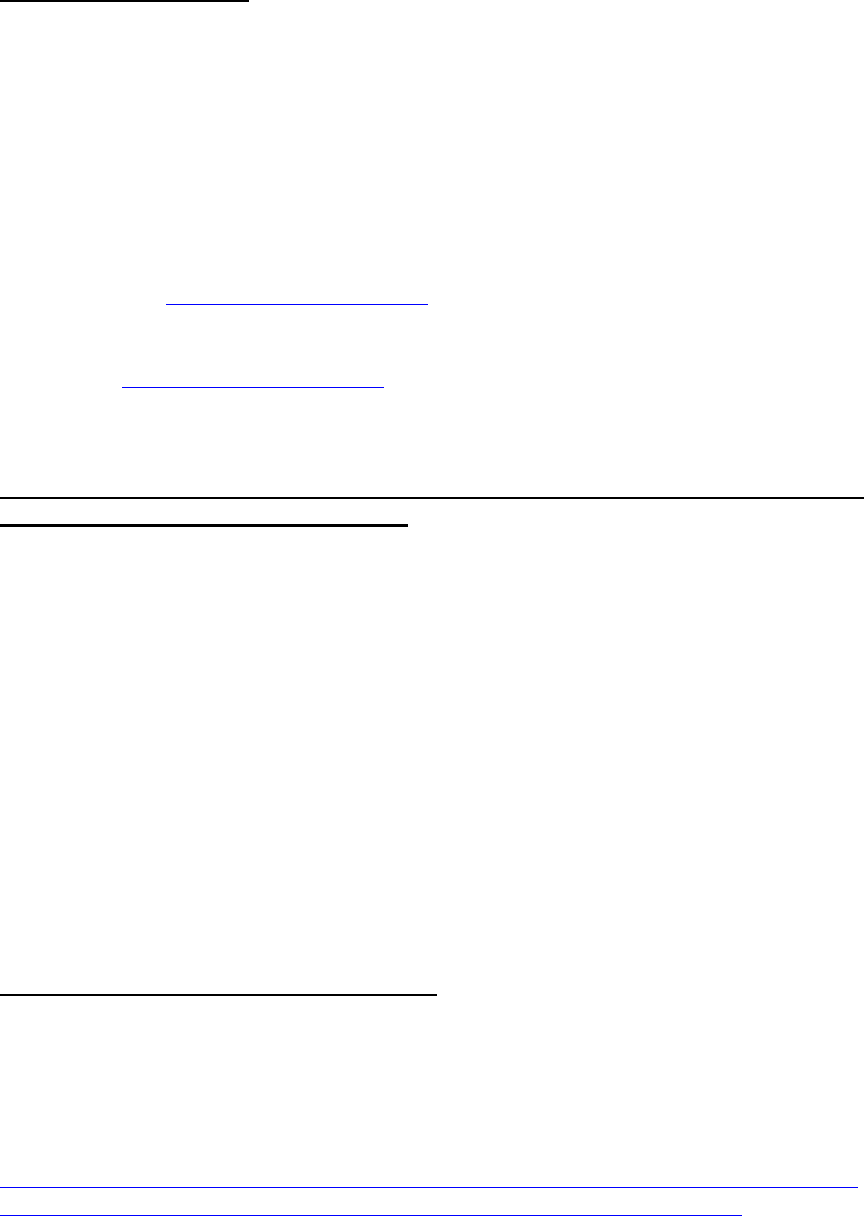
14
Presentations in Arabic:
Have given a number of lectures in Arabic at a number of institutions and universities on
various topics, including:
1. The Grand Ethiopian Renaissance Dam – Challenges and Opportunities,
University of Khartoum, Faculty of Economic and Social Studies, January 2012.
2. Ethiopia Dams and the Nile Waters Disputes, Ambassador Jamal Mohamed
Ahmed Cultural Forum, Khartoum, Sudan, June 2011.
3. The Nile Basin Fifty Years after the 1959 Agreement, and the Potential
Implications of the Southern Sudan Referendum, Teeba Press Center, Khartoum, Sudan,
May 2010; and Abdel Kareem Mirghani Cultural Center, Khartoum, Sudan, June 2010.
4. The Gezira Scheme in the Sudan: Evolution, Developments and the 2005 Gezira
Act, available at: www.salmanmasalman.org
5. Contemporary Water Problems and the Issue of Water Security in the Sudan,
Sudanese Society for the preservation of the Environment, Khartoum, Sudan, June 2009,
available at: www.salmanmasalman.org
6. Water Users’ Associations and their Role in Water Conservation and Efficient
Use, Gezira Scheme Farmers’ Union, Wad Medani, Sudan, August 2007..
Books Published under my Editorial Responsibility under the Law, Justice, and
Development Series of the World Bank:
Supervised and oversaw the publication of the following books as the Editor of the Law,
Justice, and Development Series of the Legal Vice Presidency of the World Bank (2003
to 2009):
1. A Global View of Business Insolvency Systems (Jay Lawrence Westbrook et al,
2010).
2. Forest Law and Sustainable Development – Addressing Contemporary
Challenges Though Legal Reform (Lawrence Christy et al, 2007).
3. Land Law Reform – Achieving Development Policy Objectives (John Bruce et al,
2006).
4. Legal Aspects of Financial Services Regulation and the Concept of a Unified
Regulator (Kenneth Mwenda, 2006).
5. The Transit Regime for Landlocked States – International Law and Development
Perspectives, 2006.
These books are in addition to the books authored or co-authored by me, and published
under the same Series.
Review of my authored/co-authored Books
1. The World Bank Policy for Projects on International Waterways – An Historical
and Legal Analysis, a review by Kenneth Mwenda, 13 Water Policy 588 (2011).
2. The World Bank Policy for Projects on International Waterways – An Historical
and Legal Analysis, a review by Nina Eejima, titled “Going with the Flow or Swimming
against the Current”, Law and Development newsletter, the World Bank, March 2011,
available at:
http://web.worldbank.org/WBSITE/EXTERNAL/TOPICS/EXTLAWJUSTICE/0,,conten
tMDK:22852250~pagePK:148956~piPK:149081~theSitePK:445634,00.html

15
3. The World Bank Policy for Projects on International Waterways – An Historical
and Legal Analysis, a review by Kishor Uprety, 26 International Journal of Water
Resources Development, 701 (2010).
4. Regulatory Frameworks for Water Resources Management – A Comparative
Study, review in the World Bank Practitioner Notes, Issue 9, June 2008.
5. Regulatory Frameworks for Water Resources Management – A Comparative
Study, review by Julie Yeagle, 7 Sustainable Development Law & Policy 74 (2006).
6. The Human Right to Water –Legal and Policy Dimensions, review by Knut
Bourquain, 40 Law and Politics in Africa and Asia, 383, (2007), (in German).
7. The Human Right to Water –Legal and Policy Dimensions, review by Gotz
Reichert, 30 Heidleberg Journal of International Law 812 (2005), (in German).
8. The Human Right to Water – Legal and Policy Dimensions, review by Galit A.
Sarfaty, 30 Yale Journal of International Law, 338 (2005).
9. The Human Right to Water–Legal and Policy Dimensions, review by Kishor
Uprety, 21 International Journal of Water Resources Development, 217 (2005).
10. The Human Right to Water – Legal and Policy Dimensions, review by Kristen
McGeeney and Melanie Nakagawa, Volume V, Sustainable Development Law & Policy,
71 (2005).
11. Conflict and Cooperation on South Asia’s International Rivers – A Legal
Perspective, review by Joyeeta Gupta, 13 Review of European Community &
International Environmental Law, 235 (2004).
12. Conflict and Cooperation on South Asia’s International Rivers – A Legal
Perspective, review by Patricia Birnie, 13 Yearbook of International Environmental Law
855 (2002).
13. Conflict and Cooperation on South Asia’s International Rivers – A Legal
Perspective, review by Ch. Benarji, 43 Indian Journal of International Law, 389 (2003).
14. Conflict and Cooperation on South Asia’s International Rivers – A Legal
Perspective, review by Pravakar Adhikari, Spotlight, Nepal, June 27, 2003, at 30.
15. Groundwater – Legal and Policy Perspectives, review by Jennifer McKay, 27
Water International 301 (2002).
16. International Watercourses – Enhancing Cooperation and Managing Conflict,
review by Hans Bandler, 21 The Environmentalist, 77(2001), available at:
https://link.springer.com/article/10.1023/A:1010650406861
November 2023.
